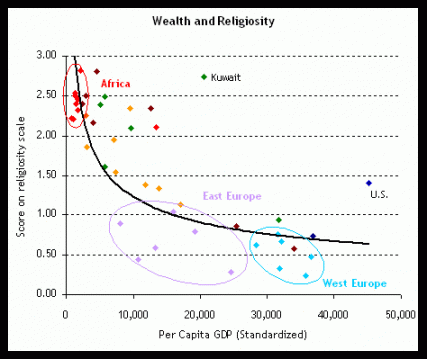Yahoo travel produced a piece on the world’s happiest countries citing data from a Gallup poll that looked at responses from 155 countries between 2005 and 2009.
“First they asked subjects to reflect on their overall satisfaction with their lives, and ranked their answers using a ‘life evaluation’ score between 1 and 10. Then they asked questions about how each subject had felt the previous day. Those answers allowed researchers to score their ‘daily experiences’ – things like whether they felt well-rested, respected, free of pain and intellectually engaged.”
This study reminded me of the Himalayan kingdom of Bhutan and its call to replace Gross National Product with a Gross National Happiness Index as the leading economic indicator. But Bhutan does not appear with top marks in the Gallup poll. (However it did, according to the BusinessWorld article, rank 8th out of 178 in a ranking of “Subjective Well-being” by Adrian G. White of the University of Leicester. This was, moreover, “despite the fact that it is the only country in the top 20 ‘happiest’ countries that has a very low GDP”).
The nations taking the top spots include: Denmark, Finland, Norway, Sweden and the Netherlands. This might not come as a surprise to many who have been to these nations. What is surprising, however, is that three of these five nations are among the top 10 least religious nations in the world (also from Gallup).
Indeed, Sweden, Denmark and Norway came in at second, third, and fourth, respectively. Only Estonia was less religious than these nations.
Here in the United States, we hold a relatively high religiosity given our high economic wealth. We stand as an outlier in typical graphs of religiosity v. wealth among industrialized nations.
However what message is being sent when three of the five happiest nations in the world are also among the least religious? It serves to note, as well, that although they did not make it into the top 10 list of least religious nations, Finland and Netherlands are also not known for being lands of faith.
These results are discussed in a book I read several months ago by Phil Zuckerman, a sociology professor at Pitzer College, titled Society without God: What the Least Religious Nations Can Tell Us About Contentment. In the piece, Zuckerman discusses how these nations function quite well sociologically without firm religious convictions (much to the surprise of many in the U.S. who would argue to the contrary). The interviews Zuckerman collected offer an insight into what a Godless society actually looks like from the ground.
I am fully aware that the data presented in this short post might be like comparing apples to bookshelves. Additionally, measures of “happiness” or “religiosity” can often be so vague and difficult to quantify that they lose their meaning. However, I still found it quite interesting to notice the trend between religiosity (or not) and happiness.
I invite thoughts regarding the matter below in the comments section.






